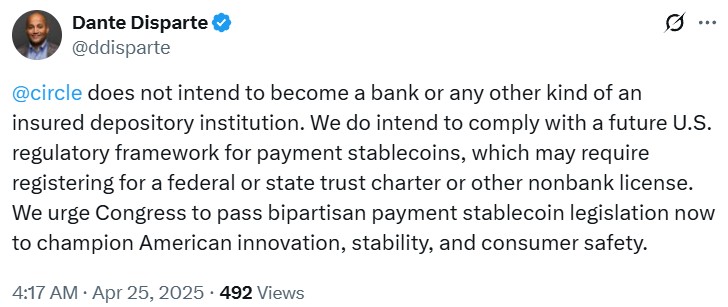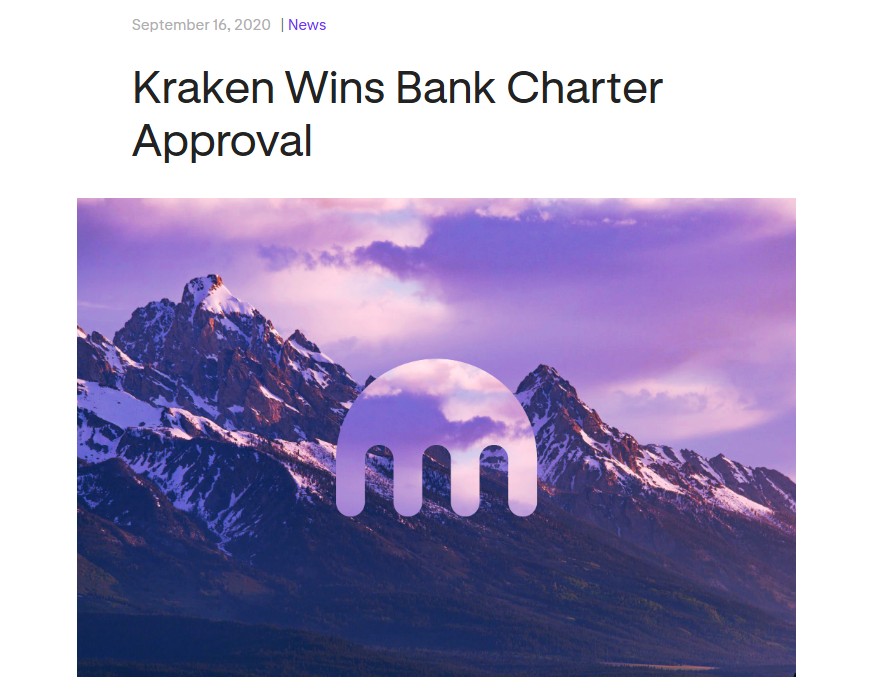Crypto firms are no longer just challenging the traditional fina
  |
Crypto firms are no longer just challenging the traditional financial system, they are increasingly becoming part of it.
Companies like Circle and BitGo are reportedly pursuing banking charters and preparing for a wave of incoming stablecoin legislation that could further blur the lines between crypto firms and traditional banks.
In the US, two major bills — the Stablecoin Transparency and Accountability for a Better Ledger Economy (STABLE) Act and the Guiding and Establishing National Innovation for US Stablecoins (GENIUS) Act — aim to introduce new rules on stablecoin issuers, covering everything from reserve requirements to licensing and compliance obligations.
Europe’s Markets in Crypto-Assets (MiCA) framework already regulates stablecoins and in Hong Kong a proposal would require stablecoin issuers to obtain a license from the Hong Kong Monetary Authority.
To discuss to ramifications, Magazine brought together legal experts from across the globe: Charlyn Ho of Rikka in the US, Joshua Chu, co-chair of the Hong Kong Web3 Association, and Yuriy Brisov and CBDC and market researcher Alexandra Zviagintseva, both from Digital & Analogue Partners in Europe.
Magazine: In what way does becoming a regulated bank change how a crypto firm operates?
Chu (HK): Obtaining a banking license would give firms a degree of trust and allow them to offer traditional banking services like deposit-taking and lending. With a bank charter also comes regulatory oversight, including capital control requirements, KYC/AML obligations, and regular audits.
The idea of large crypto players seeking banking licenses is actually not a new development. Back in 2017, Switzerland had at that time invited major crypto institutions to come to the jurisdiction and consider obtaining a banking license. Even then, banks had a role to play. On-ramping and off-ramping currencies are a huge part of the process, whether you like fiat or not. One of the early frustrations among crypto players was seeing money or wealth they couldn’t really touch, because the moment they tried to cash it in, they were red-flagged by banks due to AML policies around unusual or irregular transactions.
Ho (US): When I was at my old law firm, one of the early pro bono projects we worked on involved helping women in Afghanistan who were traditionally barred from having bank accounts. The goal was to use Bitcoin to give them access to funds in a way that couldn’t be taken away by male family members. In contrast, traditional banks in some places might impose restrictions like requiring a male co-signer for account creation or withdrawals. So crypto offered an alternative system that could provide banking-like access without traditional barriers.


I don’t necessarily think that crypto firms getting banking charters means they will abandon all of those original ideals. But the mainstreaming of digital assets does mean some loss of independence from the traditional banking system. If the GENIUS and STABLE Acts (or any future regulations) pass, they will effectively create a regulatory framework for crypto companies that mirrors the framework for traditional finance and banking.
Magazine: Are banks pushing back against stablecoins and is that making stablecoin firms to act more like banks?
Brisov (EU): Initially, banks resisted stablecoins due to competitive concerns. But as it became clear that stablecoins are here to stay, banks have been the first to pivot. In Europe, several banks have already applied to issue their own stablecoins. Similarly, in the US, Bank of America and others have indicated interest.
From early on, one approach was to use crypto as a technology, while still viewing it as part of the global financial system. Players like Circle and Coinbase followed this path, adhering to regulations and rules from the outset.
Kraken was the first crypto exchange to apply for a bank charter in Wyoming. Wyoming is well known among crypto enthusiasts, and in 2020, it created a new entity called a Special Purpose Depository Institution (SPDI). Kraken became the first SPDI in Wyoming. They stated on their website that they received a bank charter. But it wasn’t a federal bank charter or even a traditional state bank charter. It was a special-purpose solution allowing crypto companies to receive deposits, custody cryptocurrency, and facilitate crypto exchanges.


So I wouldn’t say crypto is simply being pushed into the global financial system, but it’s more that certain players chose that path from early on.
For example, Circle has consistently been pro-regulation. They began publishing attestation reports even before frameworks like MiCA in Europe. It was already acting like a bank or…
cointelegraph.com
